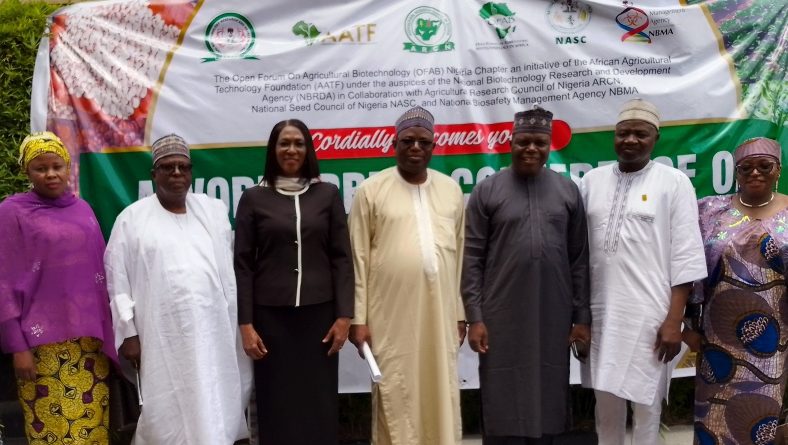Scientific Coalition Rebuts Anti-GMO Campaigns, Reaffirms Safety of Genetically Modified Crops
In a unified stance, Nigeria’s top agricultural research bodies have declared genetically modified organisms (GMOs) safe, countering a recent wave of anti-GMO campaigns.
The Agricultural Research Council of Nigeria (ARCN), backed by key agencies like the National Biotechnology Research and Development Agency (NABRDA) and the National Biosafety Management Agency (NBMA), asserts that GMOs pose no harm to humans, animals, or the environment.
The coalition, including the National Agricultural Seed Council, National Agricultural Quarantine Service, and Sheda Science and Technology Complex, emphasized that the safety and benefits of genetically modified crops are well-established. This collective position was announced in response to escalating media campaigns against GM technology in Nigeria, which the group criticized for attempting to undermine local advancements and expertise.
Leading the charge, ARCN Executive Secretary Prof. Garuba Sharubutu highlighted the council’s mandate to advise the Federal Government on agricultural research and biotechnology applications. “Our research institutes focus on genetic improvements of staple and cash crops, livestock, and fisheries,” Sharubutu stated. “Biotechnology offers novel ways to enhance crop resilience and productivity, crucial for food security amidst climate challenges.”

Prof. Abdullahi Mustapha, Director General of NABRDA, addressed the controversy sparked by the introduction of Tela Maize. He acknowledged the public’s fear and skepticism fueled by misinformation. “Our goal is to dispel myths and educate the nation on the proven safety and advantages of GMOs,” Mustapha explained, citing global success stories from the USA, Europe, Brazil, Argentina, and South Africa.
Advocating for the transformative potential of GMOs, Mustapha emphasized their role in addressing food scarcity, malnutrition, and environmental sustainability. “Through genetic engineering, Nigerian scientists have developed pest-resistant, disease-tolerant, and climate-resilient crops like Bt Cowpea, Bt Cotton, and Tela Maize,” he said. These innovations promise a secure food supply for future generations.
Dr. Agnes Yemisi Asagbra, Director General of NBMA, reiterated the agency’s commitment to rigorous GMO regulation. “NBMA enforces strict standards and conducts thorough risk assessments to ensure the safety of GMOs in Nigeria,” she noted. This process involves evaluating potential health and environmental risks, including allergenicity and toxicity, with input from scientific experts.
Public engagement is a cornerstone of NBMA’s approach. “We actively involve stakeholders in biosafety discussions, holding consultations and workshops to address concerns transparently,” Asagbra said. This dialogue helps dispel misconceptions and fosters informed public opinion on GMO safety.
Dr. Kahild Ishiak, Acting Director General of the National Agricultural Seeds Council, debunked myths about GMO seed viability. “Seeds from Nigerian-bred GM materials can be replanted, similar to conventional seeds,” he clarified. However, for optimal yields, farmers are advised to purchase new seeds annually.
Architect Kabiru Ibrahim, President of the All Farmers Association of Nigeria (AFAN), supported GMOs from a practical standpoint. “GMOs have improved farmers’ earnings and productivity,” he said. “The allegations made by anti-GMO activists are unfounded.”
This robust defense of GMOs from Nigeria’s leading agricultural institutions underscores a commitment to leveraging biotechnology for sustainable agricultural development. As the debate continues, the coalition’s message is clear: embracing GMOs is vital for Nigeria’s food security and economic prosperity.

